My Identity
Combination of Cultures
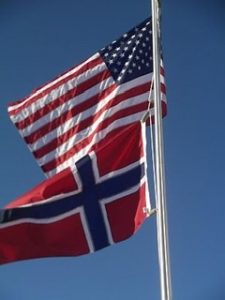
An interesting aspect of American national identity lies in the fact many people still associate with other cultures and identities while still being “American.” My grandparents and parents hail from Norway, meaning I have a strong sense of Norwegian national identity. However, I have never actually been to Norway and have spent my whole life in the States. This leaves me with an interesting combination of passed on traditions and cultural aspects that I have never fully experienced because I am detached from the actual country of my heritage.
Regional Differences
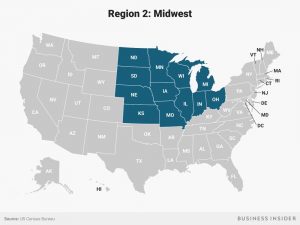
Because the United States covers so many different climates and geographic areas, national identity is uniquely correlated with the region you grow up in. A Californian and a Newyorker have two distinctly different understandings of what it means to be American. I grew up in West Michigan and Chicago. As an American, the region you grow up in influences everything from your accent to your interactions. Midwesterns often have a sense of urgency that many associates with cold seasonal weather that does not provide the ability to linger and chill. Some components of Midwest culture that have made it into my own national identity include: hard work creates success, respect for those in your community is extremely important, self-reliance is expected and being a bad neighbor is the ultimate sin.
Religion
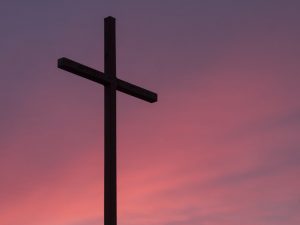
The United States is home to the largest number of Christians in the world. My family and I are included in that group of nearly 205 million. In the United States, it is incredibly easy and safe to practice your Christian faith. Not only is it easy, but in some circles, it is almost expected. In West Michigan, where I grew up, you were expected to be Christian. For many, Christianity is more than a religion in the sense of how it ties people together. Many communities are shaped and created in the local churches, and that was the world I grew up in West Michigan.
Religion and the State

Growing up in a Christian family I grew up hearing and understanding the importance of the Pilgrims who created a settlement at Plymouth Harbor. Their understanding of how religion should work within a community and the government still affects me today. People are free to practice their faith without religious persecution, however many Judeo-Christian values and morals are represented in the government. From “in god, we trust” inscribed on currency to laws upholding a worldview of a Christian, the United States is closely tied to faith. Many of the founding fathers of the United States claimed to be Christian. Identifying as a Christian in the United States is also closely tied with the history and foundation of the country.
Foundation of the Country
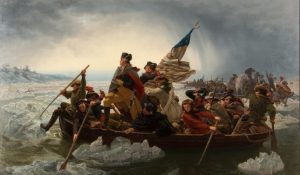
Similar to the Pilgrims establishing a community in New England, the revolutionary war also carries a large sense of national identity because it contributed to the establishment of the country. The United States was born out of rebellion, so today most Americans still have a similar mindset. This manifests itself in the fact that many Americans enjoy doing things differently compared to other countries and the idea that individuals are capable of drastically affecting the status quo.
Military and Wars

War and the military play heavily into the American psyche. Winning both world wars, the cold war, and smaller proxy wars have created a sense of superiority for most Americans. This sense of superiority militarily is warranted, the U.S. easily has the world’s largest military budget. Not only do Americans have a sense of superiority due to the military, but we also feel a sense of justification because we have won pretty much every war we have participated in. For me, the military has shaped my life because my Grandfather served for 23 years. The money he earned throughout his career allowed my father to live a comfortable life and acquire quality education. The military also developed skills and attributes in my grandfather that have been passed down generations to me.
Immigrants
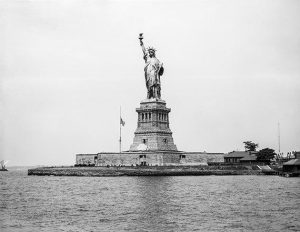
Regardless of what the current political climate says, the U.S. owes much of its success to immigrants. The U.S. is home to the immigrant mentality. Work hard and always look for the next opportunity and you will succeed. Due to the prevalence of immigration, few people identify as only American. Similar to my own identity having Norwegian influence, all around this country there are Italian Americans or Chinese Americans. All this ties back to the common understanding that at one point we were all immigrants. In many ways, it is humbling because we know most of our ancestors came here from terrible conditions seeking a better life.
American Dream
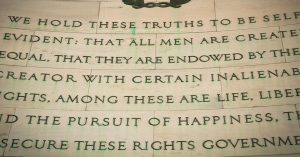
Closely tied to the prevalence of Immigrants is the existence of the “American Dream.” Although the “American Dream” is different for each person and undefinable, the concept of what it means remains the same for everyone. This concept, in theory, says that if you work hard and capitalize on opportunities that come your way you will live a better life than your parents and leave behind an even better life for your children. This is what my grandparents and countless other immigrants were chasing. The American Dream is generally understood to rest on the importance of hard work. For better or worse, the average American spends more time working than people in other countries.
Two Party System

The U.S. identity has been molded by basically two parties. For this reason, people tie their own national identity with allegiance to a certain political party. This polarization creates a large divide between fellow citizens. However, the divide between republicans and democrats feeds into one’s national identity. Part of one’s national identity could be disagreeing with someone of the opposite party. People’s national identity is created and formed when they enter the voting ballot and choose between two candidates of opposing beliefs. People identify with a political position that has its unique understanding of what being an American means, further solidifying their understanding.
Nature/National Parks
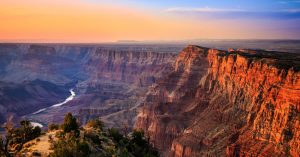
I debated between using the Grand Canyon or Yosemite, this shows just how beautiful and diverse the American geography is. Whether it is cornfields, forests, mountains, or swamps Americans are proud of the geography of where they live. National identity is oftentimes found in the most basic elements of a country, the land. Geography is a physical and tangible component of one’s national identity, and Americans have plenty of examples that prove America’s significance. The fact that certain places are deemed national parks and under the government’s supervision proves they are a source of pride and identity for Americans.
Industries

From energy to technology, industries dominate the American economy and to a lesser extent people’s lives. Mega-Corporations such as Apple of Coke employ millions, have extreme amounts of influence, and impact our lives daily. American industries are at the cutting edge of utilizing and developing technology. Along with industry comes brands that people feel a connection to. Oftentimes these brands are homegrown in the United States, and supporting a brand feels like you are supporting your country.
Sports

Americans love their sports. Baseball is “America’s pastime”, the Superbowl draws in 100s of million viewers, and all around the world, the NBA is recognized as the highest level of basketball in the world. America is the destination for the best athletes in the world that want to show off their skills. Anytime I turn on the tv I can watch a variety of insane athletes from all around the world compete in different sports. Beyond sports played in America, the Olympics plays a key role in one’s national identity. Since I was born, America has received the most medals at every single Olympics. National identity not only lies in the popularity of sports but the excellence of American athletes.
Egypt Identity
Nile
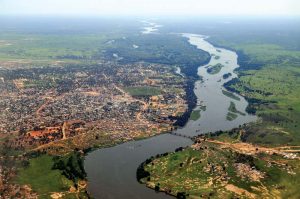
Past, present and future nothing is as important to the Egyptian way of life and country as the Nile river. For thousands of years, the Nile has been the center for travel, agriculture, economy, and urban centers. Even people outside Egypt immediately associate the Nile river with the nation of Egypt.
Pyramids of Giza

The pyramids are one of the wonders of the world for a reason. The grandeur, magnificence, and intrigue have surrounded them for centuries. They are physical reminders of the power and strength of the old dynasties that ruled Egypt. They are not only monuments to the Pharaohs buried within, but to the glory of Egypt. The question of how these colossal pyramids were constructed has stoked debate and intrigue of people around the world. An Egyptian must be proud that something your nation created thousands of years ago is still looked at with amazement and wonder.
The Desert
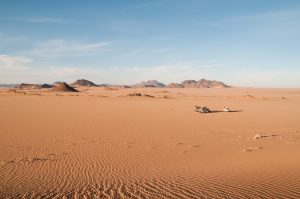
In the juxtaposition of the areas close to the Nile, the deserts of Egypt make up a large majority of the land. The small number of people here live lives so different from people in Cairo or other developed urban areas along the Nile. The duality of Egypt is a large part of the identity. On one hand, you have the lush areas along the Nile, on the other, you have desolate stretches of desert.
Cleopatra
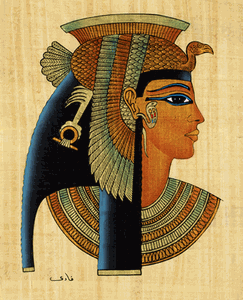
Few people throughout history have captured the imagination and intrigued as Cleopatra. Known for her beauty and cunning, no better ambassador exists for a country. Whether it be influencing other nations, developing Egypt’s economy, or being an extremely powerful woman, has many components that make her a perfect source of national pride and identity.
Religion
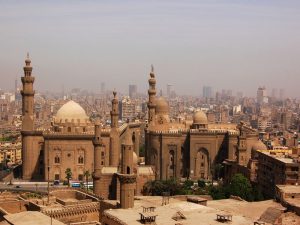
Today Islam dominates in Egypt. Roughly 90% of the country is Sunni Muslim, meaning a large majority of the country can attach religion to their national identity. When such a high proportion of fellow Egyptians practice the same religion as you, being a citizen and Muslim often blend into the same thing. Just because there is such a majority does not mean there is no unique and diverse history of religion in Egypt. The other roughly 10% are Coptic Christians, which makes up the largest Christian organization in the Middle East. Even though Islam is heavily practiced, many stories that relate to Judeo-Christian religions occur in Egypt such as the book of Exodus. Going back further in history the ancient religions of Egyptians explained through hieroglyphics are also interesting and distinctly Egyptian.
Thousands of years of History

The sheer amount of history alone provides an interesting component to the Egyptian identity. Compared to the mere couple hundred years of American History, Ehytpain history spans thousands of years. This insane amount of history is full of dynamic dynasties, changing religions, evolutions of cultures, territorial expansion, and interactions with other ancient civilizations. An Egyptian must think that Egypt is destined to exist forever. For thousands of years, they have adapted to conquerors such as Alexander the Great, assimilated to cultures, and converted to religions.
Suez Canal

Built in the 1800s, the Suez Canal completely revolutionized trade and travel and Egypt was at the forefront of all of it. With the construction complete Egypt became a large player in international trade. Egypt’s geographic position was proven to be extremely important once again with the construction of the Suez Canal. The construction of the canal itself is a source of pride for Egyptians.
The Mediterranean
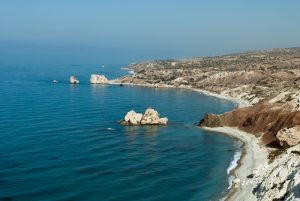
Egypt’s location makes it unique because it fits into many different geographic categories. Egypt can be classified as part of North Africa, part of the Middle East, or as a Meditarian country. These diverse geographic differences allow for Egypt to not just be seen as one type of country. It’s not only the desert, not only the Nile, not only the Mediterranean. Because Egypt is home to varying geography, the people have a sense that Egypt is complex and can not just be summarized. There are beautiful aspects completely different from each other.
Library of Alexandria
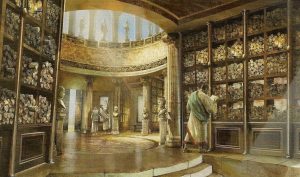
The burning of the Library of Alexandria is considered by many ones the worst losses to humanity. Before it was burned Alexandria was the main scholarly destination in the world. The people that visited Alexandria shaped the ancient world as we know it. For an Egyptian, knowing that your country used to be a leader in art, medicine, and other scholarly work is most definitely a source of pride. The fact that the burning of Alexandria is considered a tragedy just points to the importance and irreplaceability of the library.
Rosetta Stone

The Rosetta Stone was the key to understanding ancient hieroglyphics from thousands of years ago. Unlocking the past through the reading of previously unreadable and forgetting hieroglyphics adds to the historical significance that ties in so closely to the Egyptian Identity. It’s one thing to be able to point to an object from thousands of years ago and understand the story, context, and purpose of said object.
Papyrus

Papyrus was cultivated along the Nile river and was turned into anything from paper to sails throughout Egypt. It was a large part of the Egyptian economy and agriculture. In many ways, papyrus can be attributed to the success of many of Egypt’s Dynasties. It was extremely versatile and could be inscribed on, making it extremely invaluable for any developing civilization. Because it was such a prevalent component of an Egyptian’s lifestyle and culture, papyrus still plays a role in the sense of national identity.
Cats
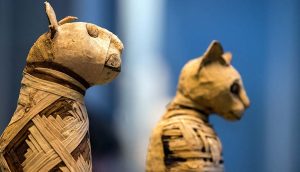
Cats were a very prevalent part of ancient Egyptian culture. Cats were depicted in divine ways and gods often took the form of cats. There is evidence of domestic cats in Egypt nearly 5000 years ago, meaning cats have been a part of Egyptian culture and war of life earlier than any other known culture in the world.